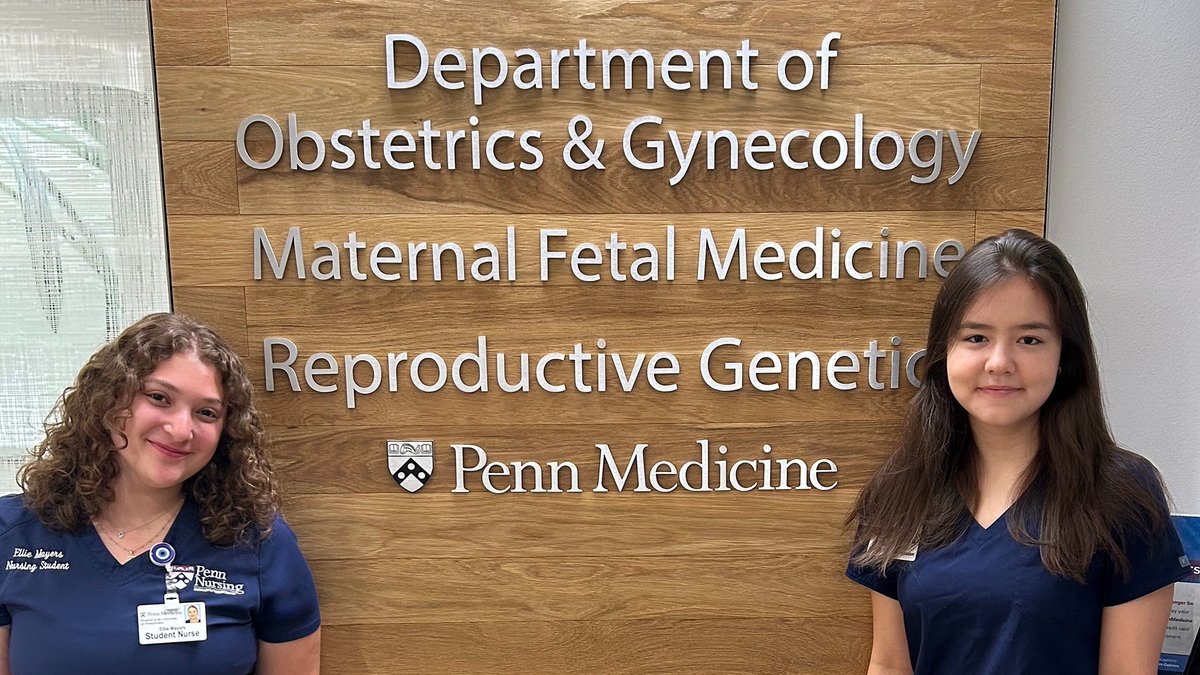
In a recent Penn Today article, Penn undergraduates, Ellie Mayers and Gladys Smith, shared the impact of their summer research experience gathering data from patients for a study led by Beth Leong Pineles, MD, PhD, Assistant Professor of Obstetrics and Gynecology at the Hospital of the University of Pennsylvania, and an Assistant Professor of Epidemiology in the Department of Biostatistics, Epidemiology and Informatics.
Restrictions on physical activity and even complete bedrest are frequently prescribed for pregnant patients by doctors or suggested by others to prevent preterm birth, even though both practices have been proven ineffective and in some cases even harmful. Dr. Pineles is conducting a study of activity restriction during pregnancy with the goal of “deimplementation” in the Penn Medicine system and ultimately nationwide. The long-term goal is to use exercise as a tool to reduce preterm birth and improve the overall health of pregnant women.
Through the Penn Undergraduate Research Mentoring Program, a 10-week summer program supported by the Center for Undergraduate Research and Fellowships (CURF), Mayers and Smith assisted Dr. Pineles with the first stage of the study’s research—determining the prevalence of bedrest and activity restriction, starting with the patient population at Penn Med, through an in-person survey of pregnant patients.
“The young students are so eager and interested, and it’s a good way to get them involved and get started on something of their own. I always ask them to come up with their own project. What question can you ask with the data that we have that seems interesting? What do you want to know?”
The survey asks patients to describe their high-risk conditions, what advice they were given about physical activity during their pregnancy, and who gave that advice, among other questions about their health. “We don’t know what women are being told. We don’t know who’s telling them. And I think it’s important to know that if we’re going tackle the problem and understand it better,” Dr. Pineles says.
Pineles started her own research when she was an undergraduate at University of California, Irvine, so she wanted to provide the opportunity for Penn undergraduates. Mayers and Smith are the first undergraduate research assistants she has recruited since joining Penn Medicine two years ago from University of Texas Health Science Center in Houston. Pineles was at the University of Maryland for residency and the University of Southern California for her M.D. and Ph.D.
“The young students are so eager and interested, and it’s a good way to get them involved and get started on something of their own,” Pineles says. “I always ask them to come up with their own project. What question can you ask with the data that we have that seems interesting? What do you want to know?”
Mayers says that Pineles has been a “really excellent mentor” as an attending physician at Penn Med. “That’s a connection that I hope I’m going to have for a really long time, and I hope to continue to build on,” Mayers says, “She’s someone that when I enter the workforce will look out for me and already is providing me with professional development opportunities.”